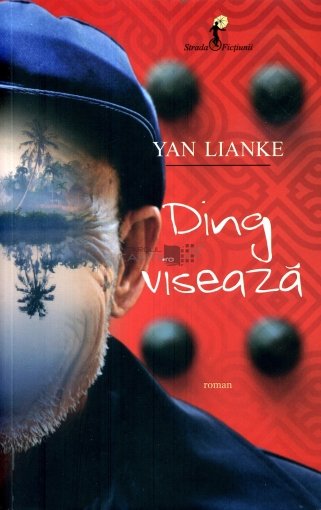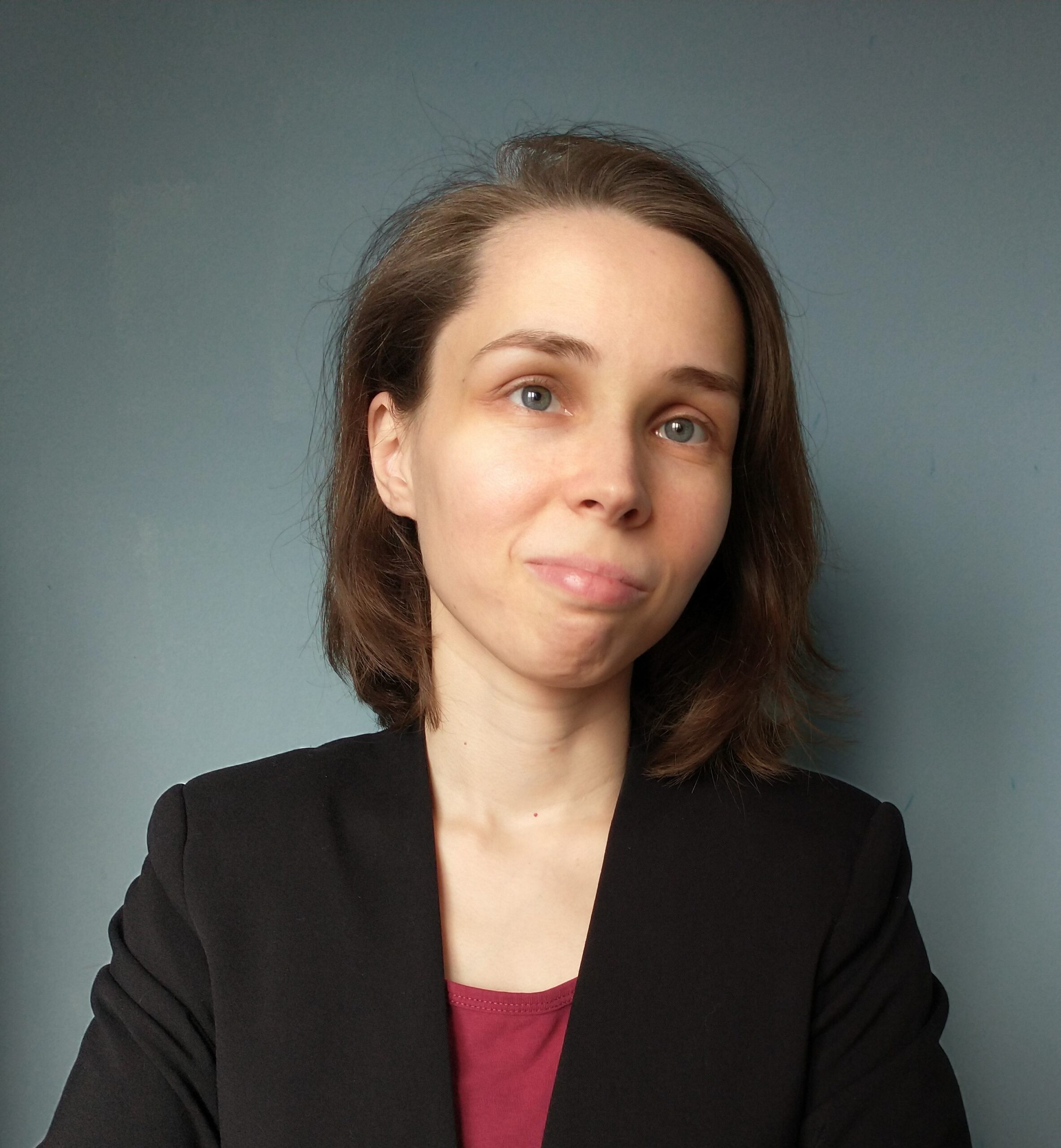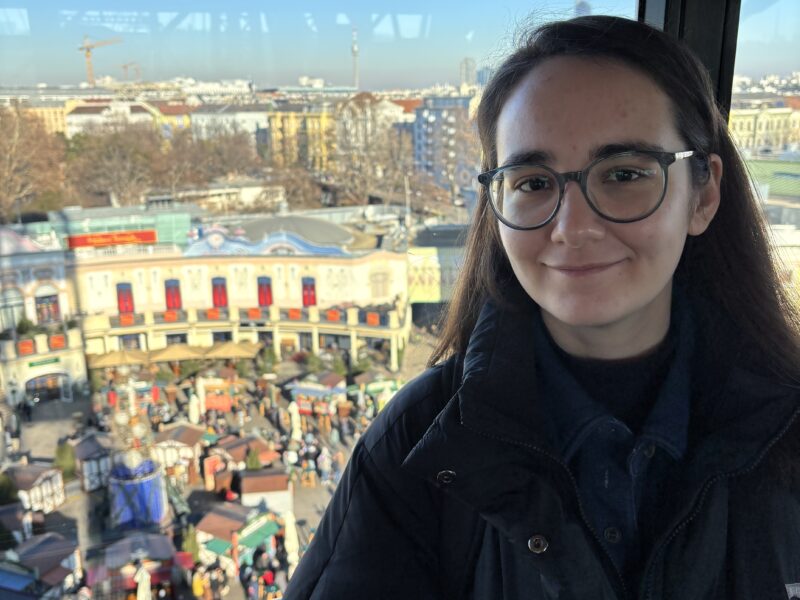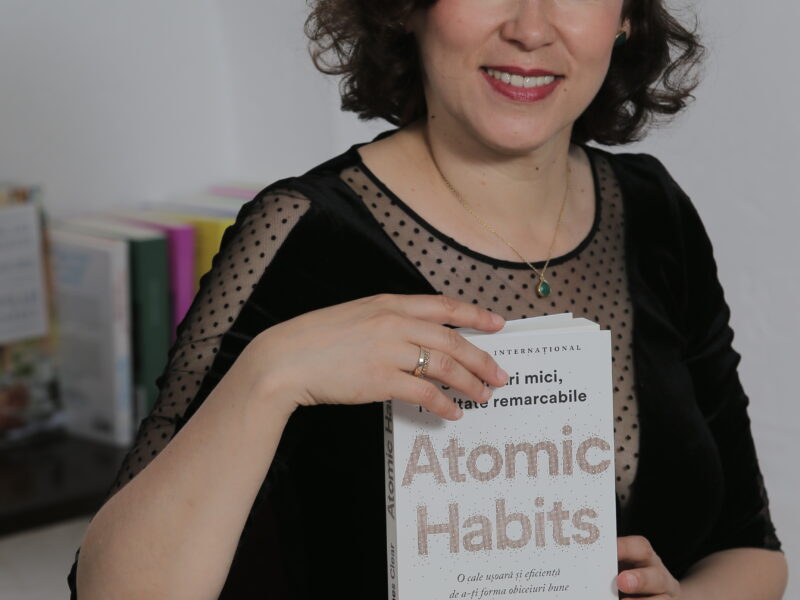Ruxandra Câmpeanu este redactor de carte străină la editura Booklet și redactor la revista Euresis. Cahiers roumains d’études littéraires. She has a PhD in Philology at the University of Bucharest and herthesisis to be published soon. She translates books from English, she attends exclusivist book clubs and is a trustful protector of Romanian language.
Reading has been your profession for some time now. Do you still have time for pleasure readings? What book made an impression on you lately?
Throughout the last years, I’ve had more time than usual for pleasure readings; it’s one of the great advantages of the part-timejob which I’ve had, intermittently, since 2016. Since the pandemic began, I’ve even managed to make an obligation from pleasure readings (otherwise I can get workaholic tendencies and that's the only way I manage to contain them): every Sunday, I meet with a few friends and we discuss a book together. This is how I read Thucydides' Peloponnesian War and I re-read the Annals of Tacitus, which are extraordinary. I adore Tacitus, he's my all-time hero, he has some extraordinarily deep psychological insights. But literature-literature, in the sense of fiction assumed as such, that attracts me less and less.
What does a copy editor's working day look like?
Copy editors always work on more books simultaneously - usually two: one to be copy edited and one for pagination, which needs proofreading or has already been copy edited by someone else and returned to the editor for them to check and approve the corrections. And on really special days, the copy editor has to grant an imprimatur, at which point they usually find that the account at home does not match the one at the fair and that the printing house to which he or she sends the book has its own demands. But it all ends well. And there are, of course, the meeting days, everybody's favorites.
Iulia Gorzo said in a recent interview that "the copy editor is a key element in the production of a book." The statement seems even stronger, coming from a translator. What is this importance of the copy editor?
Iulia Gorzo is an excellent translator - I don't have to say it anymore - and it's a joy for any editor to work on a translation of hers (I haven't had the opportunity, but I know about a few). But, leaving aside the few exceptional translators in Romania, who make copy editor’s work much easier, the latter really plays an important role in the caring process of a book. The copy editor of a translation follows the quality of the translation on all levels - starting from punctuation, spelling, grammar and the property of the terms to style and atmosphere – and he or she intervenes wherever is necessary. Sometimes they compare the translation they edit with other older translations of the same book or with editions from other languages.
Apart from what they do for the book they’re working on, the copy editor also has a wider cultural role, which we’re not thinking about very often, but which seems very important to me: they contribute, together with the translator, to the practicing of possibilities of the Romanian language. I think that most of the interventions I have as a copy editor have the role of eliminating the constructions taken as such from English, such as "at the end of the day" or "make sense".
However, the copy editor has an ungrateful job and few recognize the merit of it: as the readers has only the "finite product" in front of them, they can’t realize how much is owed to the translator and how much to the copy editor, and I think not even the translating awards they’re offering do not always manage to take recognize the contribution of the copy editor. It’s difficult to quantify, that’s true, but there are situations when the copy editor saves the book and, implicitly, the translator’s reputation. To this difficulty of quantifying the copy editor's contribution is added the fact that, in general, readers are not familiar with the editorial path of a book. If it’s clear what the translator and proofreader have to do, it’s more difficult to understand the purpose of a copy editor and many, in fact, do not even know that copy editors also work on books.
It probably happens for you to have differences of opinion with the translators. How do you manage to find a common denominator? What are the winning arguments?
Yes, it happens. If I’m pressured to send the book to be printed or if the issue concerns more commercial books, less stylistically demanding, I don’t talk to the translator in detail, but we manage, in any case, to discuss the more important issues or passages that lend themselves to an exchange of arguments. I get along well with translators, we’ve been working together for a long time and decisions are not dictated by pride; both them and I consider what is best for the book. What I say it’s not always set in stone and, even though I’m an “interventionist” editor, I try not to restrict the translator’s personality and to respect their solutions, if they’re relevant and consistent. There’s this more difficult discussions that I had when I happened to work with a translator who didn’t have the sense of language; it's very hard to convince someone that it's better to say, for example, "the world took him for a fool" instead of "people thought he was stupid" if they don’t feel themselves the difference between the two.
Have you ever come across less carefully done translations and had to ask for the text to be redone or even had the translator changed? What are the reactions of the translators then this happens?
It happened to me to want to change the translator, but it’s never been possible. Although the contracts concluded with the translators allow it, the publishers don’t reject translations and don’t ask for their remaking, probably because they try to avoid legal conflicts and want to save time. So the solution was, each time, to redo the translation. I often encountered this situation at first, but at the publishing house where I work now I have the freedom to choose my own translators and, when I happened to receive a poor translation, I decide not to work with that translator on other books. I have now a solid team of translators, whom I trust.
What does a well copy edited text mean to you?
A well copy edited translation is one that gives the reader the impression that the story was written in the translated language from the start.
Do you re-read the translated books?
No.
What are the biggest challenges in this profession?
The constant attention and patience you must have for someone else's thoughts and words. Beyond that, if you’re a copy editor in a country deeply affected by emigration, like Romania, a challenge is the feeling that you’re trying in vain to maintain the vitality of a dying language.
What about the biggest satisfactions?
The joy of contributing to something, when you see that a book you’ve worked on came out well and is read with pleasure.
In a 2017 interview you complained that sometimes a copy editor needs to “burn the steps” to comply with financial and time pressures, thus delivering a finished product perhaps below his or her standards. Is the same thing happening now, when, for more than a year, people seem to have slowed down?
Yes! Sometimes I honestly think that this is the work culture in Romania, regardless of the circumstances. The pandemic hasn't changed much. On the contrary, it created an unpredictable climate, which induced much uncertainty in the editorial decisions. In any case, even before the pandemic, and now, the most affected is the proofreading. Many times, publishers either skip proofreading or entrust it to a copy editor or editorial secretary, so as not to hire another person (in fact, as the salaries in publishing houses are unsatisfactory, it’s also difficult to find people willing to work as a proofreader).
Has the way you read a book for pleasure or aside of your workplace changed since you were a copy editor?
Yes. In worse. In my early years of copy editing, I only saw typos or pagination mistakes, even in the books I read in my spare time. I couldn't concentrate at all. I don't mean to say that they were not well taken care of; some were very well taken care of, but I read as if I had to make a proofreading. In the meantime, I got rid of that.
How did you learn this profession? Does one study in school, does one steal? Have you taken part in trainings organized by the publishing house?
It’s all about stealing. It’s not enough to know Romanian and a foreign language. I honestly learnt it in the office, listening or participating in discussions between colleagues, when they were debating on more difficult passages. I don't think you can learn otherwise. I didn’t participate in trainings, I didn’t have the opportunity.
What advice would you give to a student interested in this profession? What should they do, how should they prepare?
I’d recommend them to do translation exercises. To take a text of which there is already an existent very good translation into Romanian, to translate on their own a few passages and then to compare it with the translation. They won’t learn to copy edit, but they’ll probably begin to understand what a good translation means, what kind of problems they can encounter in a translation and what expectations a copy editor has regarding a translation.
In the same interview mentioned above, you said that there should exist better collaboration between the departments of a publishing house. What exactly do these relationships consist of?
Publishing houses have at least an editing office, DTP and a sales department, and bigger publishing houses have also a marketing / PR, production, copyright, graphics, legal, financial, etc. department. All the departments are involved in the transit of every book and many decisions must be made together. If the departments don’t communicate well with each other, syncopes inevitably occur along the way, as well as situations difficult to be resolved.
Let's take just one example: the date of printing. If the copyright department is not consulted, the publishing house risks exceeding the contractual term by which it’s obliged to put the book on the market or to send to print a book for which it hasn’t previously requested the approvals provided in the contract (some contracts stipulate that the publishing house is obliged to send the cover or title of the book for approval, if amended). If the editor, DTP editor and graphic designer are not involved, the deadline may be unrealistic and not leave enough time for copy editing or pagination or for the cover. If the finance department is not consulted, printing costs may be inconvenient. If the marketing / sales department isn’t consulted, the book may be released at an inappropriate time, when it cannot attract enough attention.
You’ve also translated numerous books, both adult and children's fiction. I’ve always lived under the impression that it’s more difficult to translate children's literature, because you need to have a certain level imagination and a certain lightness of style. How are these things for you?
Children's literature doesn’t seem more difficult to translate, but it has its own difficulties, which are not negligible at all. As a children's literature translator, you have to find ingenious solutions for word games, you sometimes have to rhyme and you have to understand the humor of the story. Humor is very difficult to translate. I’ve translated quite a bit compared to professional translators; I would like to have more time for translations.
Is the relationship you have with a copy editor in the position of translator different from the one in the opposite direction, when you’re the copy editor?
When I'm a translator, I find the editors less likeable. When I'm an editor, it's the other way around.
In which of these two situations, translator or editor, do you feel more comfortable?
I feel more comfortable as a translator. I like to be the first person to have contact with the text. As a copy editor, I’m always afraid of wronging the translator.
Do you follow the transit of the books you’re translating or copy editing after they’re published? Are you interested in how they’re received by the public and how they’re sold?
Yes, I’m interested and happy when it happens that the public’s taste coincides with my preferences. To my disappointment, the books I’ve worked on with the greatest pleasure are not the ones that sell the best.
You’ve been working in the publishing field as a copy editor and translator for ten years. Has anything changed in the mechanics of this professional segment since you started?
I don't think much has changed. Translation fees are in the large the same as they were ten years ago. Salaries haven’t increased enough in the publishing field either, and this prevents the professionalization of the "book industry". Many capable people migrate to more lucrative professions, others choose to work abroad. There are some segments that are doing better than others - children's books, self-help literature - and others that are neglected, such as fiction. So no, I don't think things have changed. But if something good comes out of this pandemic for the publishing world, I hope things move towards digitalization, internationalization (job opportunities outside for freelancers) and mobility (more openness to work from home, which is implementable in publishing houses and which would make them more attractive as a job, given that they’re not very competitive in terms of wages).

What is your favorite book you’ve worked on?
To be honest, I don't really get attached to the books I work on. Maybe Dream of Ding Village by Yan Lianke, a novel about the AIDS epidemic that, out of ignorance and greed, wreaked havoc in Henan Province in the 1990s. Entire villages were destroyed then. It's hard to find the right tone for such a story, but Yan Lianke succeeds, with a surprising mix of candor and cruel satire. I worked on it while working at All Publishing House and in our country it came out in 2015, under the inspired translation of Roxana Rîbu.
But out of the translated ones?
Out of the translated ones, I like Rudyard Kipling's Kim the most. It was my first translation and, so far, the most demanding one.
Returning to a question from the beginning: what would a day in a copy editor's life look like in an ideal world? And what would they enjoy, in sensory terms, while working on a good book?
In an ideal world, the copy editor would work leisurely on a very neat translation of a well-written novel, which would give them the opportunity to rejoice at the thought of doing a useful work for society and that soon the readers would also have the opportunity to see the beauty of the book that has landed in their hands. They would make a joke with their colleagues and maybe have a coffee. The meeting would have been the day before. (Translated into English by Silvia Codescu)



